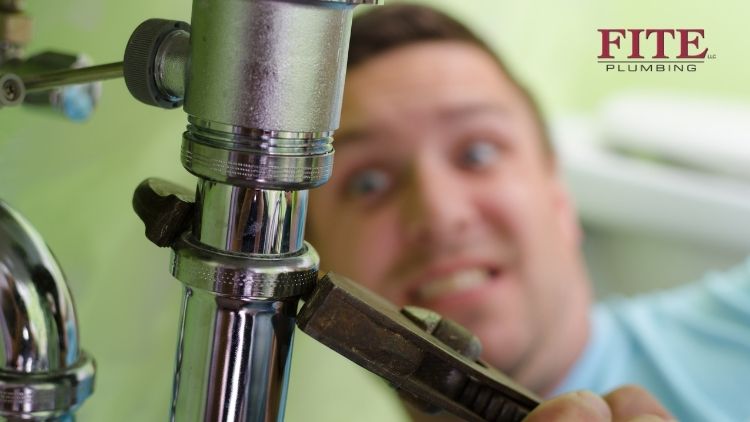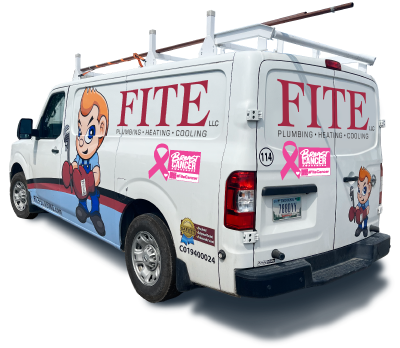Many of us enjoy DIY around the home. At times it can be a money saver and for many it is an enjoyable hobby. When you are considering a project, DIY plumbing safety is one the most important considerations. By following basic safety methods and precautions you can avoid injury and have success completing your project. Plumbing projects are no different. Here are some Do’s and Don’ts for safe plumbing projects.
Make DIY plumbing safety a priority by doing these things:
Do Your Homework
Make sure you know what you are getting into. Watch videos, do the research, read or watch tutorials, and get the right tools. Recognize your own limits and do not overestimate your own abilities.
Be Informed
Check on local building and plumbing regulations and safety codes. Know which projects you can do yourself and which require a professional. Be sure you have the proper permits for any project you are completing.
Practice Makes Perfect
Whenever possible, practice things like gluing PVC, cutting, soldering, and using any tools before you are working on the project.
Think Before You Open a Drain
Before separating parts of the pipe or opening cleanout, consider which direction the contents in the pipe will flow once it is opened. Drains are typically not under pressure, but with a clog, there may be pressure. Many a plumber has had the horror of opening a cleanout in a basement with the power of a firehose of pressure spewing out sewage.
Turn off the Water
If you are working with a water supply or there is any chance you will be in contact with the water supply, shut off the water before beginning work. Don’t wait for pressure to build and cause an emergency where you have to search for the household shutoff in a panic.
Protect Your Eyes
Wear safety glasses when working on any project, and especially when you are doing anything that could result in splashing into your eyes. Work such as snaking a drain, using a drill, using a sawzall, hammering or even working under a sink while looking up can pose a safety hazard for your eyes. Small objects can fall or fly up right into your eye when you least expect it. Eyes are very sensitive and easily injured so it is always a good practice to protect them.
Proper Footwear
Wear rubber sole, non-slip, waterproof boots or shoes. This will help prevent slips and falls, protect your feet from water and chemicals, and even reduce the severity of electric shock.
Protect Your Hands
Always wear appropriate work gloves on any project. Your hands may encounter many damaging chemicals and many sharp surfaces. When using any drain machine, wearing latex gloves under leather gloves. The leather will protect your hands from the snake and tools and the latex gloves to protect you from chemicals used to clear the drain and from the germs that are typically found in drain lines.
Protect Your Lungs
Use a facemask when necessary to protect your lungs. When using chemicals, sawing, sanding, or other inhalants, be sure to wear a mask. For projects with a great deal of inhalants, use a disposable mask and dispose of it properly.
Be Cautious with power tools
Exercise caution with power tools. Follow the recommended manufacturer guidelines for use. Remain focused on the task and don’t allow distractions.
Have a Helper
Have a spotter to help keep your project easier and safer.
Read Labels
Always read the labels and instructions when using chemicals. Always follow the recommendations for use. Check warning labels and know what to do in case of an emergency.
Don’t Ignore these DIY plumbing safety tips:
Work While Impaired
Never work when you are overly tired, ill, or under the influence of any alcohol or drugs. These can impair your reflexes. They may impair your focus and invite injury. This is especially true when working with power tools of any kind.
Misuse Equipment
Tools and Equipment have specific purposes and using them in ways they are not intended for can lead to danger and injury.
Cut Blindly
Before cutting or drilling measure twice. When opening a wall, ceiling, or floor be certain that you know what is behind the surface. Plumbing pipes, electrical wiring, ductwork, or many other things can be hidden behind those surfaces and you do not want to cut into them by mistake.
Fail to Care of Equipment
Equipment that is not properly maintained can not be expected to function properly and can be a safety hazard.
Ignore Safety Codes
Plumbing and Safety codes are put into place to protect you and the public. They should not be ignored.
Carry Tools in your Pocket
Use a toolbox or tool belt to carry tools. Sharp and pointed tools should be protected and can cause injury when least expected in your pocket.
Ignore the Smell of Gas
If you smell natural gas or suspect a gas leak, stop work immediately and contact the gas company. If it is safe to do so, turn off the gas and wait for the all-clear from the gas company.
Use these tips to help keep you safe in your plumbing DIY projects. Or… to be completely safe, give us a call at Fite Plumbing at (317) 271-5400 and we can help.
Are you on Facebook? We are, too. Let’s be friends!


